Autumn 2025 | Dyslexia Awareness Week Scotland edition
Dyslexia
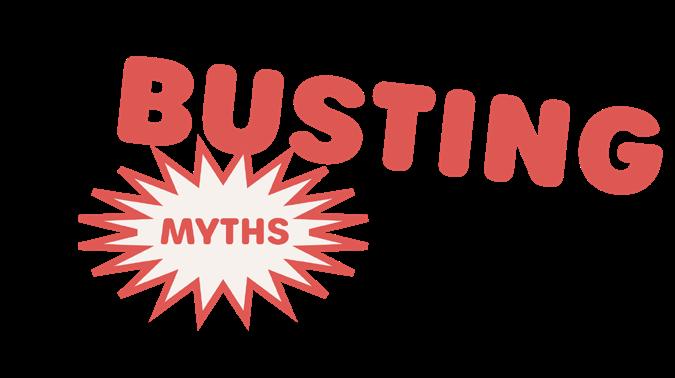
Dyslexia Awareness Week Scotland 2025 29 September to 5 October

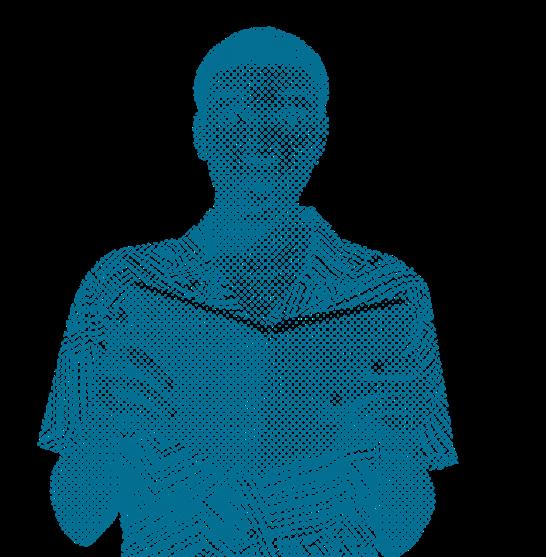
Dyslexia Awareness Week
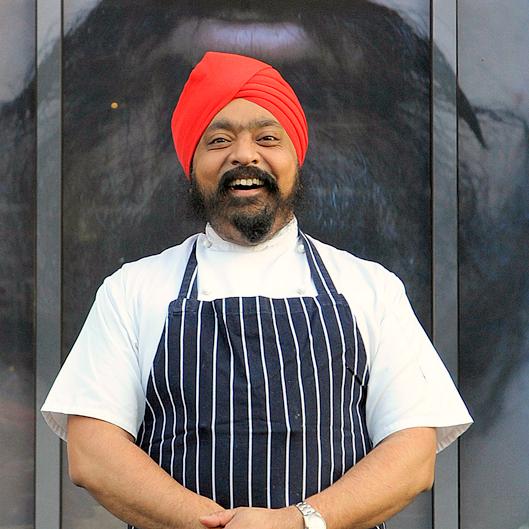

Charity No. SC 000951 Registered No. SC 153321
Dyslexia Scotland
1st Floor, Cameron House
Forthside Way
Stirling FK8 1QZ
dyslexiascotland.org.uk
X (formerly Twitter): @DyslexiaScotlan
Facebook.com/DyslexiaScotland
Instagram @dyslexiascotland
LinkedIn.com/company/dyslexiascotland/
Office telephone: 01786 446650
Helpline: 0344 800 84 84
Dyslexia Voice design and editorial staff: Cathy Magee
Katie Carmichael
Lena Gillies
Sue Bowen
Members of Dyslexia Scotland can log into our website to access magazine articles online at dyslexiascotland.org.uk/dyslexia-voicemagazine, and download a free PDF version in our online shop.
We would love to receive your feedback about this magazine.
Share your views for a chance to win prizes.
https://forms.office.com/e/3EU1KarnYA
2 Dyslexia Voice | Autumn 2025 Dyslexia Awareness Week edition
All rights reserved. Dyslexia Voice is published by Dyslexia Scotland. Articles within this magazine provide a view from the author only. Opinions may differ from professional to professional. Dyslexia Scotland may or may not share these views and opinions. Reproduction or transmission in part or whole of any item within this magazine is not permitted. While every effort has been made to ensure the accuracy of the information in this publication, the publisher accepts no responsibility for errors or omissions. Images have been reprinted with the permission of the publishers or copyright holder. We acknowledge the support and funding of the Scottish Government for this work.
©2025 Dyslexia Scotland
Put the fun into fundraising
Could your hobby raise money for Dyslexia Scotland?
Whether you’re excellent at event organisation, brilliant at baking or remarkable at running, we want you to put your talents to good use.
If you think you can use your strengths to raise funds for Dyslexia Scotland, then we want your help.
Our new fundraising pack includes guidance on organising an activity, promotional materials and how to donate.
Download the materials from our website or order a hard copy from the online shop.
The more you raise, the more we can do to make Scotland dyslexia friendly.
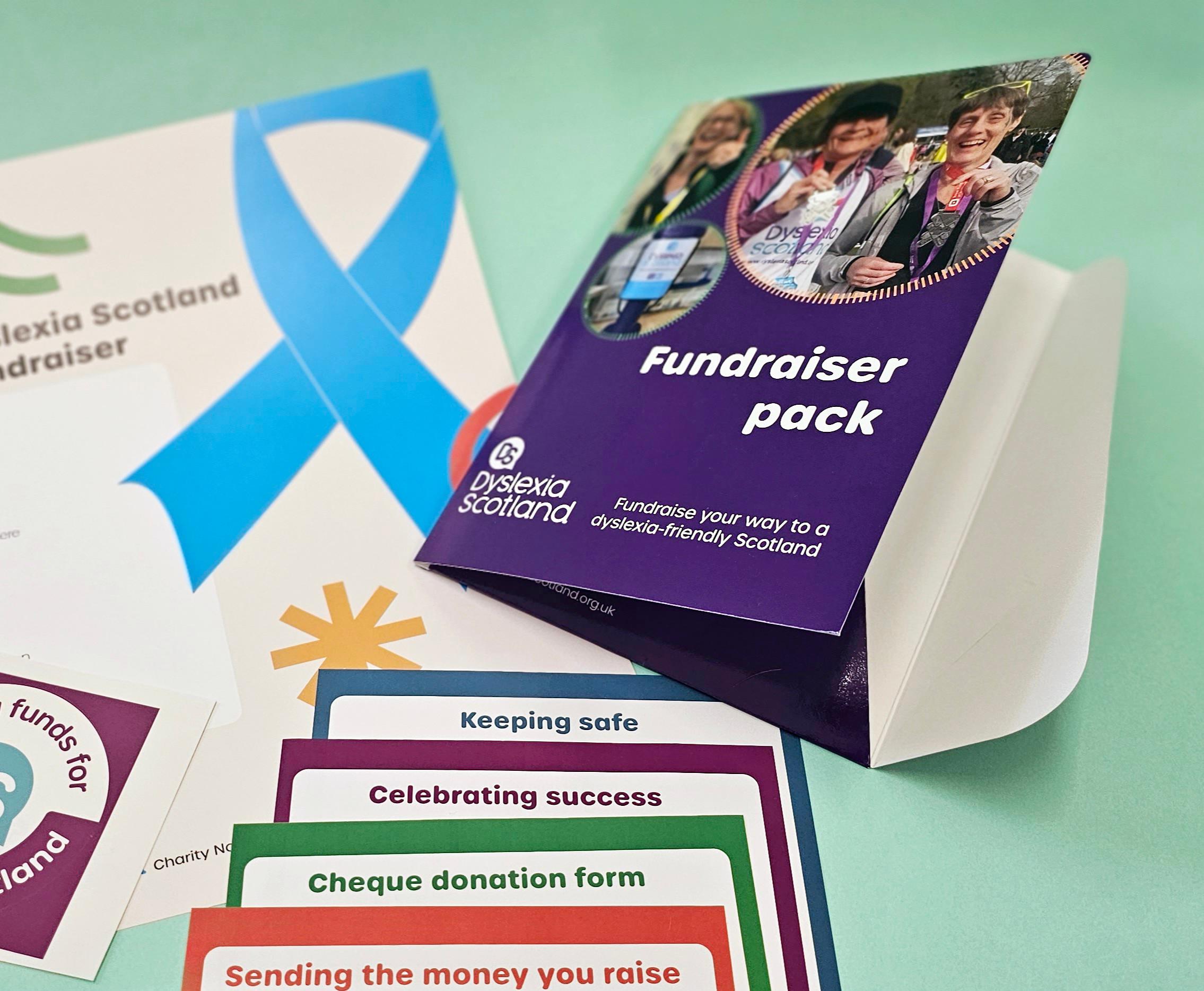
MSP
Dyslexia

Changemakers
Tony Singh
Changemaker channel
Resource
More
Young and dyslexic
Create and share
Useful
Just
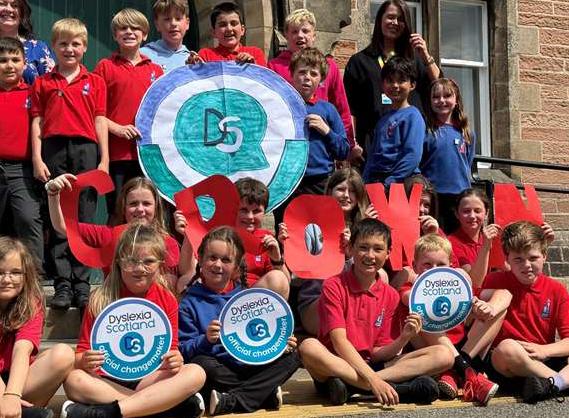
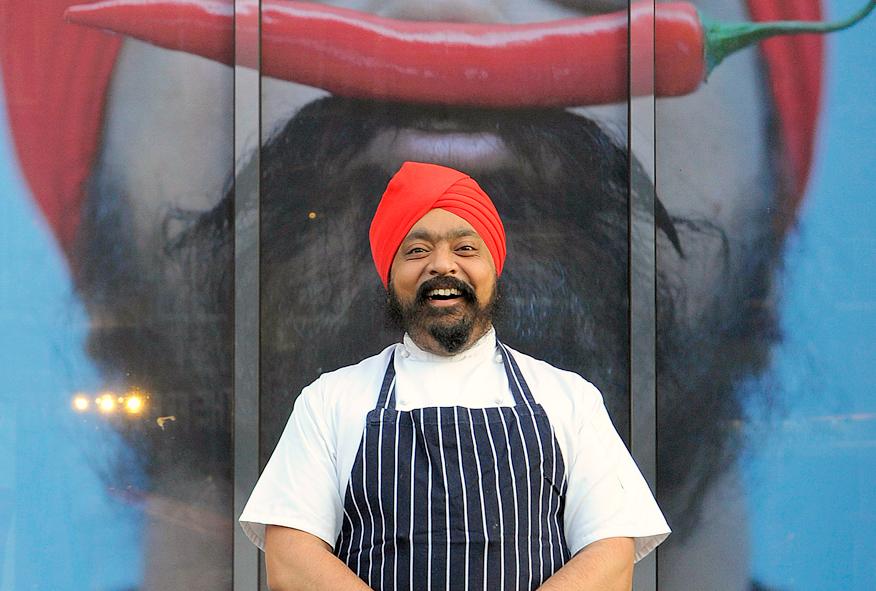
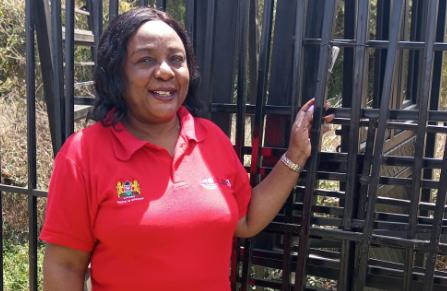

The CEO's voice
Dyslexia Scotland
Chief Executive
Cathy Magee, OBE

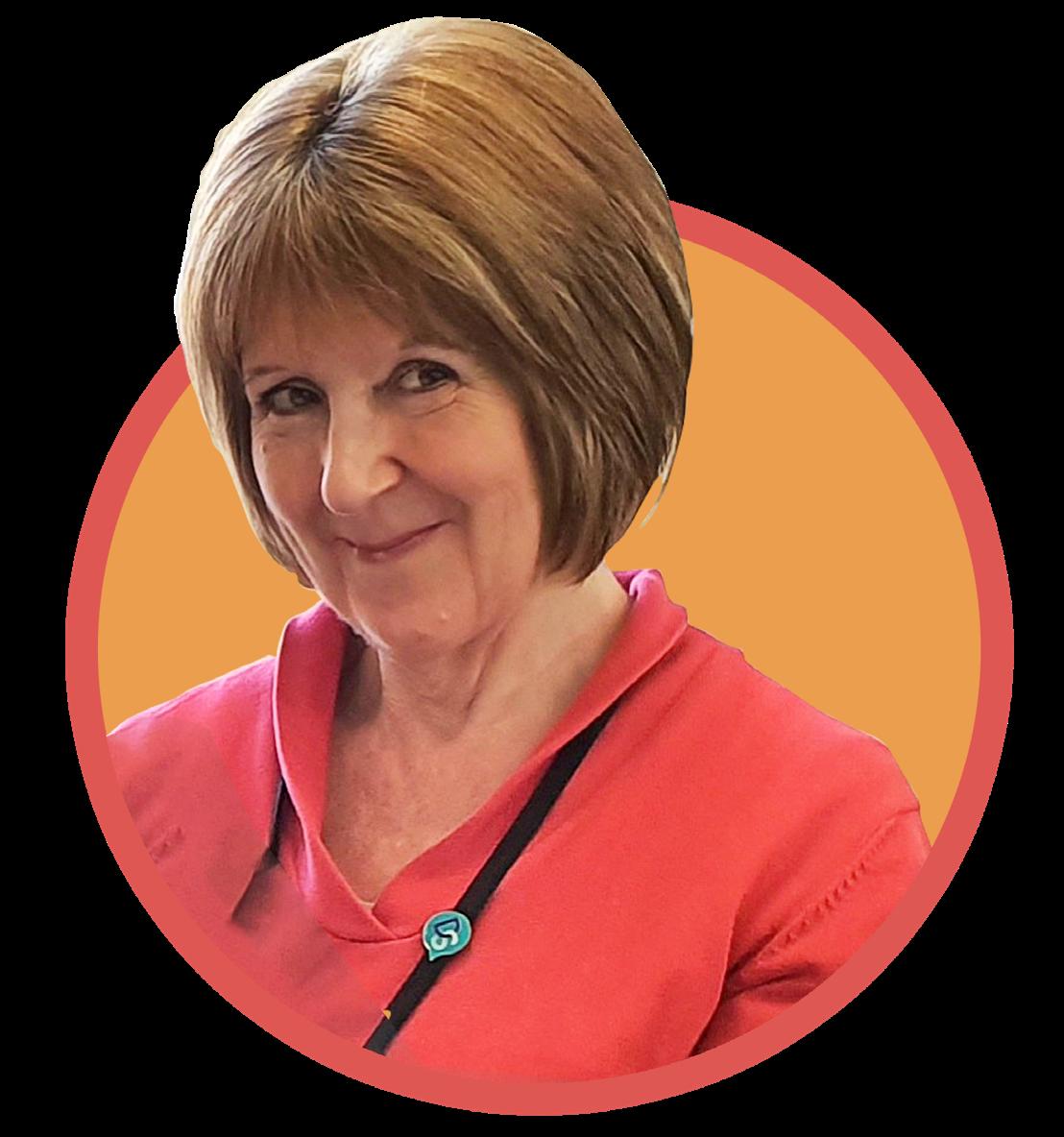
Welcome to our autumn Dyslexia Voice edition – all about busting dyslexia myths. This quarter’s magazine is full of members’ experiences of dyslexia myths, as well as many inspiring examples of how to challenge them.
This is also the theme of Dyslexia Awareness Week this year – please find your blue ribbon attached on the front cover to wear from 29 September until 5 October!
Several of our contributors talk about the myths they have faced personally, including what Ross Linnett calls “the myth that dyslexia has to limit people”, reinforced by Suzy Taylor who was frequently told “You can’t do that if you’re dyslexic”. It is encouraging to see in the insights and experiences shared elsewhere in the magazine that there are many examples in Scotland and beyond where everyone can and do thrive in their own way.
Tracy Clark’s article about ‘Finding balance’ in her career as a psychotherapist explains this well. TV Chef Tony Singh shares his experiences with our guest interviewer Ross Duncan about being curious and unafraid about “finding joy in learning even when things are tough”, an attitude that has stood him in excellent stead in his career.
Inspiring articles by our younger members, teachers and the Changemakers channel demonstrate that, with the right support, dyslexia definitely does not limit the ambition and determination to achieve. It’s lovely to see the motion in Parliament lodged by MSP Oliver Mundell to congratulate 3 pupils from Trinity primary school in Edinburgh on their recent impressive presentation about their involvement in the Sean Connery Foundation Dyslexia Initiative. Read all about the motion on page 8 and hear what the 3 young people thought about their day in parliament with Ambassador ‘Super Paul’ in the children’s and young people’s section.
The latest highlights of the work of the Dyslexia Scotland Board, staff and volunteers include:
• We are sorry to see two dedicated and long-serving Directors step down from the Board. Mike Gibson has now resigned as Education advisor, after being involved since 2012 and Andy Laverty has resigned as Finance Director after serving since 2016. Both have always been positive, reliable, loyal and constructive Directors, working in the best interests of Dyslexia Scotland and the dyslexia community. We will miss them both greatly and wish them well in the future. We are delighted to welcome new Directors Mary Berrill, Jennie Guise and Barry Macintyre to the Board. More details to come at the AGM.
• Our GTCS-accredited Dyslexia and Inclusive Practice programme: 49 teachers will join the year-long programme in September
• Launch of our Fundraising pack to encourage anyone keen to raise funds for Dyslexia Scotland – see page 2
• The 3-year Sean Connery Foundation Dyslexia Initiative in the City of Edinburgh Council has now completed. Read the final report at this link: dyslexiascotland.org.uk/impacts. Two learning modules to share the programme’s learning with educators across Scotland are currently under development.
Very many thanks go to all our contributors for your articles, poems, photos and stories.
MSP congratulates young people with dyslexia
Oliver Mundell MSP lodged a motion to congratulate three young people for delivering an inspiring and insightful presentation to the Cross-Party Group on Dyslexia in the Scottish Parliament
The pupils from Trinity Primary School in Edinburgh spoke about their personal experiences of being supported through the Sean Connery Foundation Dyslexia Initiative, a unique three-year partnership between
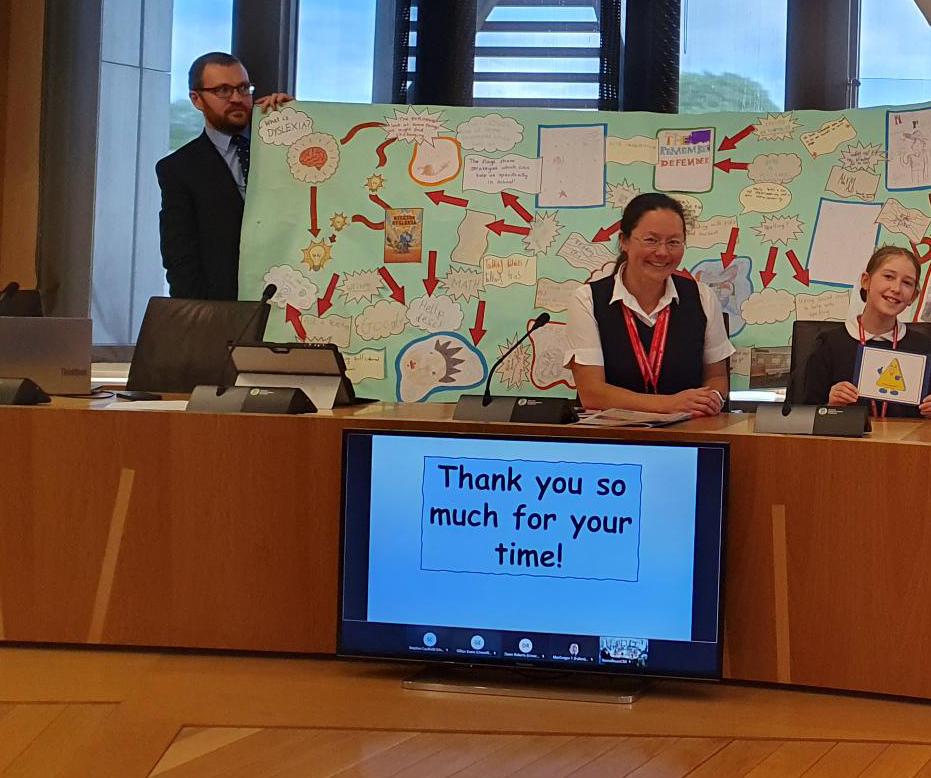
Dyslexia Scotland, City of Edinburgh Council and the Sean Connery Foundation.
The Cross-Party Group heard from the pupils about the challenges they continue to face as learners with dyslexia, the strategies that help them learn and their thoughtful suggestions for improving learning opportunities for all through confidence building and self-advocacy.
In his motion, Oliver Mundell said: “[The pupils’] voices had a powerful impact…members were deeply moved and encouraged by [their] contributions, and [The Parliament] hopes that their views will be reflected in future policy and practice, ensuring that all children and young people with dyslexia are empowered to thrive.”
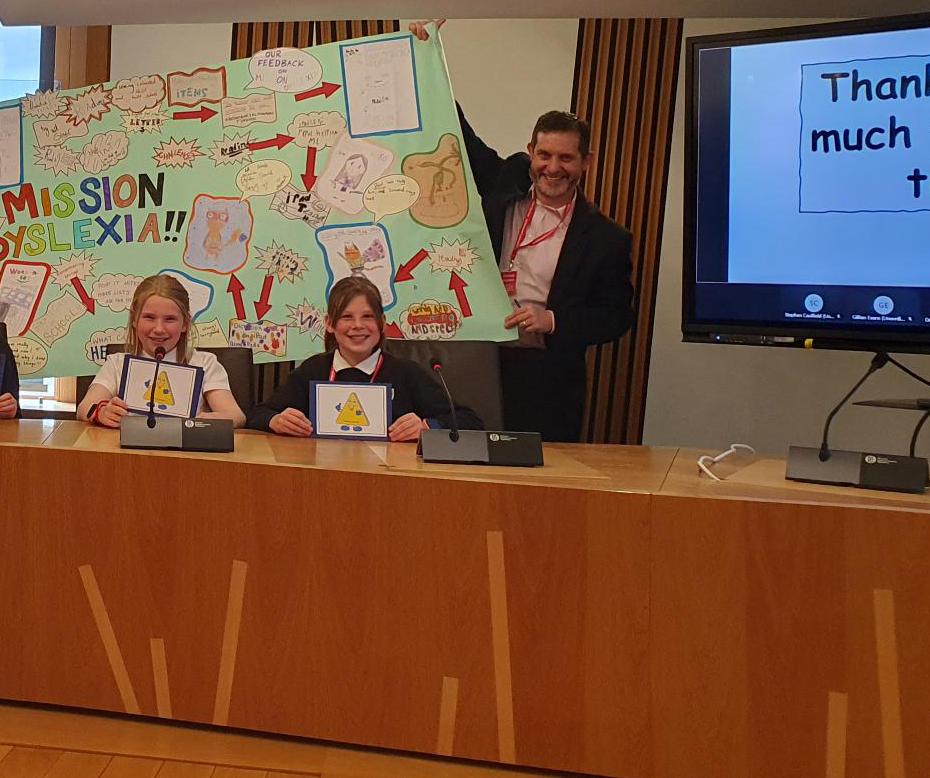
Spilling the beans
TV Chef Tony Singh MBE shares his recipe for career success with dyslexia
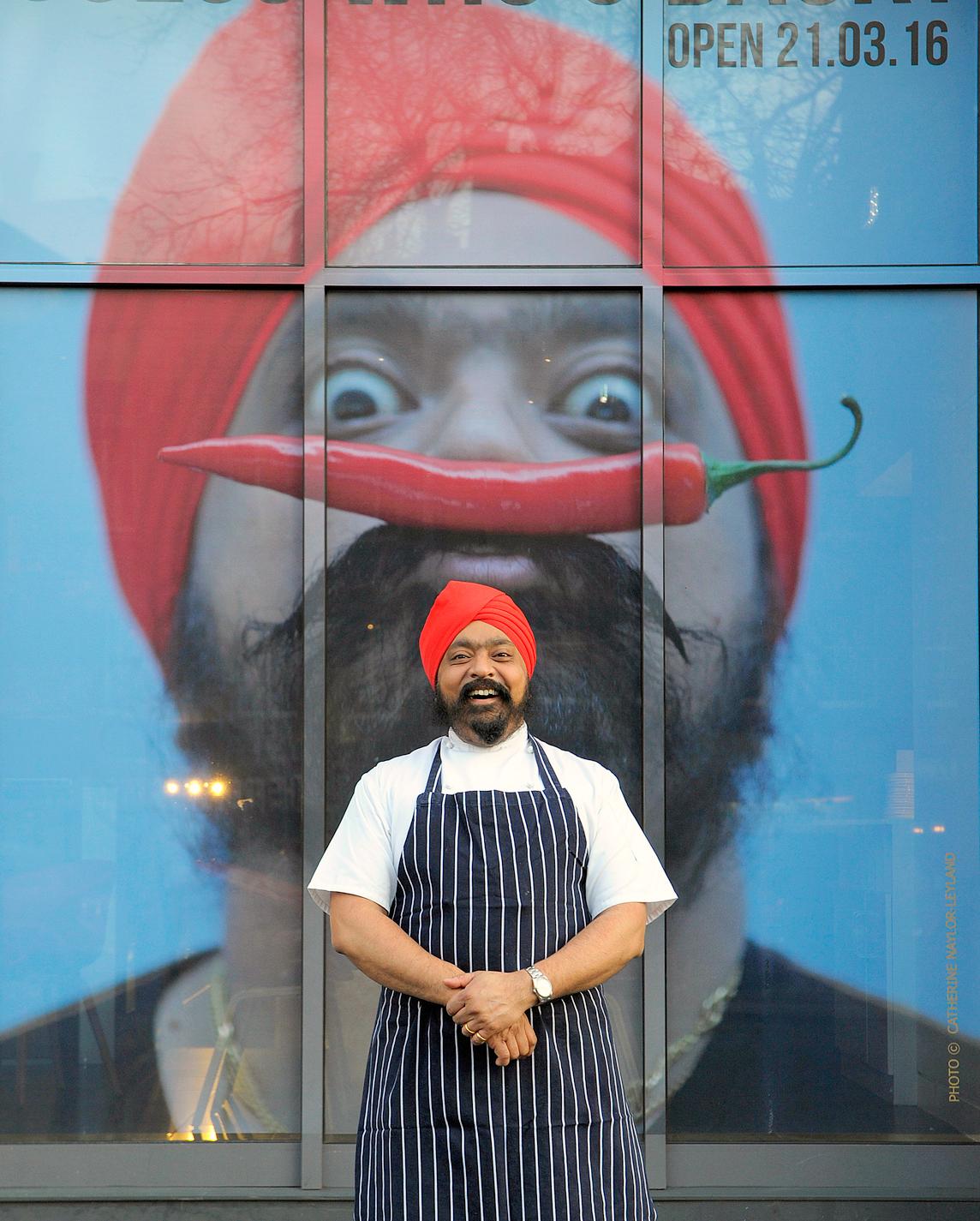
Known for his bold flavours and even bolder personality, Tony’s journey has been anything but conventional - and that’s exactly what’s made it so impactful, writes Ross Duncan
Born and raised in a working-class Sikh household in Edinburgh, Tony stood out from an early age - not just for his appearance, wearing a turban in a predominantly white neighbourhood - but also for his struggles in school. “Back then, no one knew about dyslexia,” he says. “I just knew reading and writing didn’t come easily. But I was hands-on, quick on my feet, and loved learning in my own way.”
Tony found joy in practical learning and connection. “I wasn’t the top of the class, but I stayed curious. That mindset - finding joy in learning even when things are tough - has stayed with me.”
It wasn’t until his late 30s that Tony was formally identified with dyslexia, after recognising similar traits in his children during their school assessments. “It all clicked into place. But by then, I’d already learned how to work with it. Dyslexia can hold you back, for sure, especially when you don’t have the support - but if you understand that, and don’t give yourself a hard time for understanding things differently to other people, then it can be something that actually pushes you forward, because you think differently to other people.”
That different approach became one of Tony’s greatest strengths in the kitchen. Drawn to food from a young age, he gravitated toward the structure and energy of professional kitchens, where hands-on learning was the norm.
Finding fame
After learning his craft in classical French cuisine and working his way through youth training schemes, Tony landed prestigious posts - including a role on the Royal Yacht Britannia. But it was his talent and charisma that caught the public eye, eventually earning him the title of ITV Chef of the Year and national recognition as a culinary innovator. ►
Tony’s cooking reflects his heritage and personality - colourful, bold, and unapologetically diverse. “Food is about bringing people together. That’s what I learned growing up in Leith -- it’s about sharing, community and heart”.
Tony spent time in London developing his skills and outlook, but he always knew he’d return home. “Scotland’s in my bones. I wanted to bring back what I’d learned and do something meaningful here.”
Tony now uses his platform to advocate for diversity in kitchens and greater understanding of learning differences like dyslexia. “There’s more awareness now. People see dyslexia as a different way of thinking, not a disadvantage. And kitchens are full of creative thinkers.”
For young chefs, especially those who feel like outsiders, Tony offers this advice: “What makes you different is what makes you brilliant. Don’t fit instand out. Stay passionate, work hard, and be proud of who you are.”
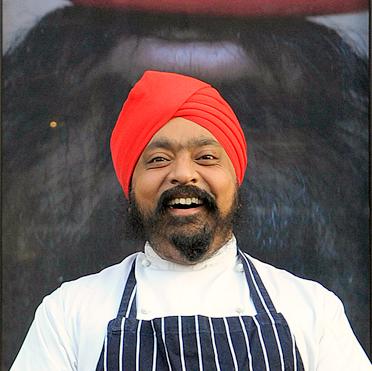
The weirdest myth I’ve heard about dyslexia
During the summer, we asked members to share weird myths they’d heard about dyselxia - here are some of the contributions
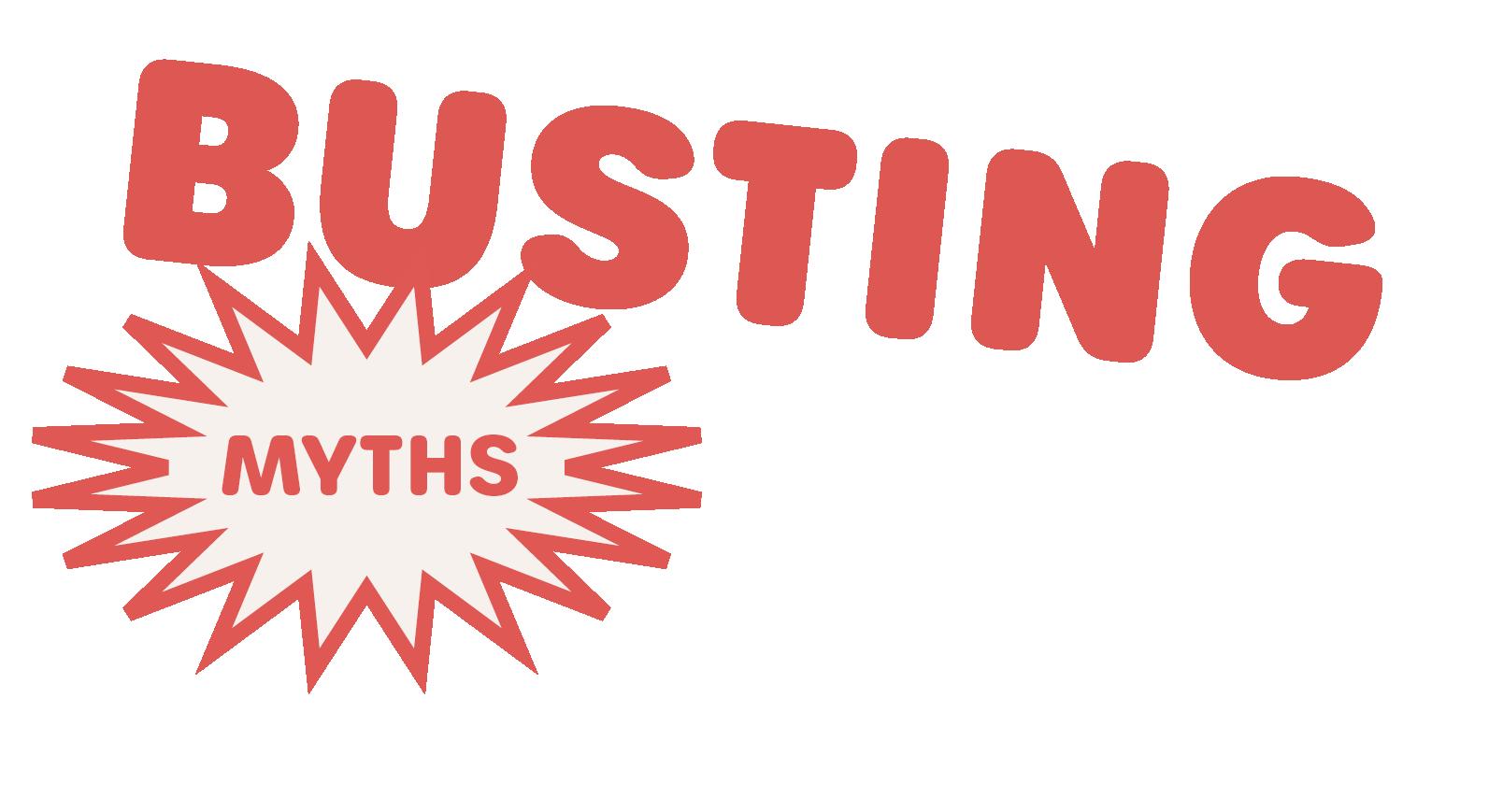
Peter:
“I keep hearing that schools don’t need to bother identifying young people as dyslexic since so many pupils have Additional Support Needs (numbers increased to a record high of 40.5% in 2024).
Truth:
The term Additional Support Needs is a very wide umbrella term that includes all kinds of support needs, both long-term and short-term. There are many reasons why children and young people may need support to help them learn, such as family circumstances, English as a second language, disability or health, learning difficulties
It’s still important to identify dyslexia as early as possible in children and young people to ensure that young people get the right type of support for their particular needs.
There’s a useful guide on Parentzone Scotland explaining what Additional Support Needs are. Scan the QR code to see the webpage.
Library platform raises awareness of dyslexia
Dyslexia Scotland and SLIC have collaborated to raise awareness among library staff
Dyslexia Scotland has collaborated with the Scottish Library and Information Council (SLIC) to help raise awareness and understanding of dyslexia among public and school librarians across the country.
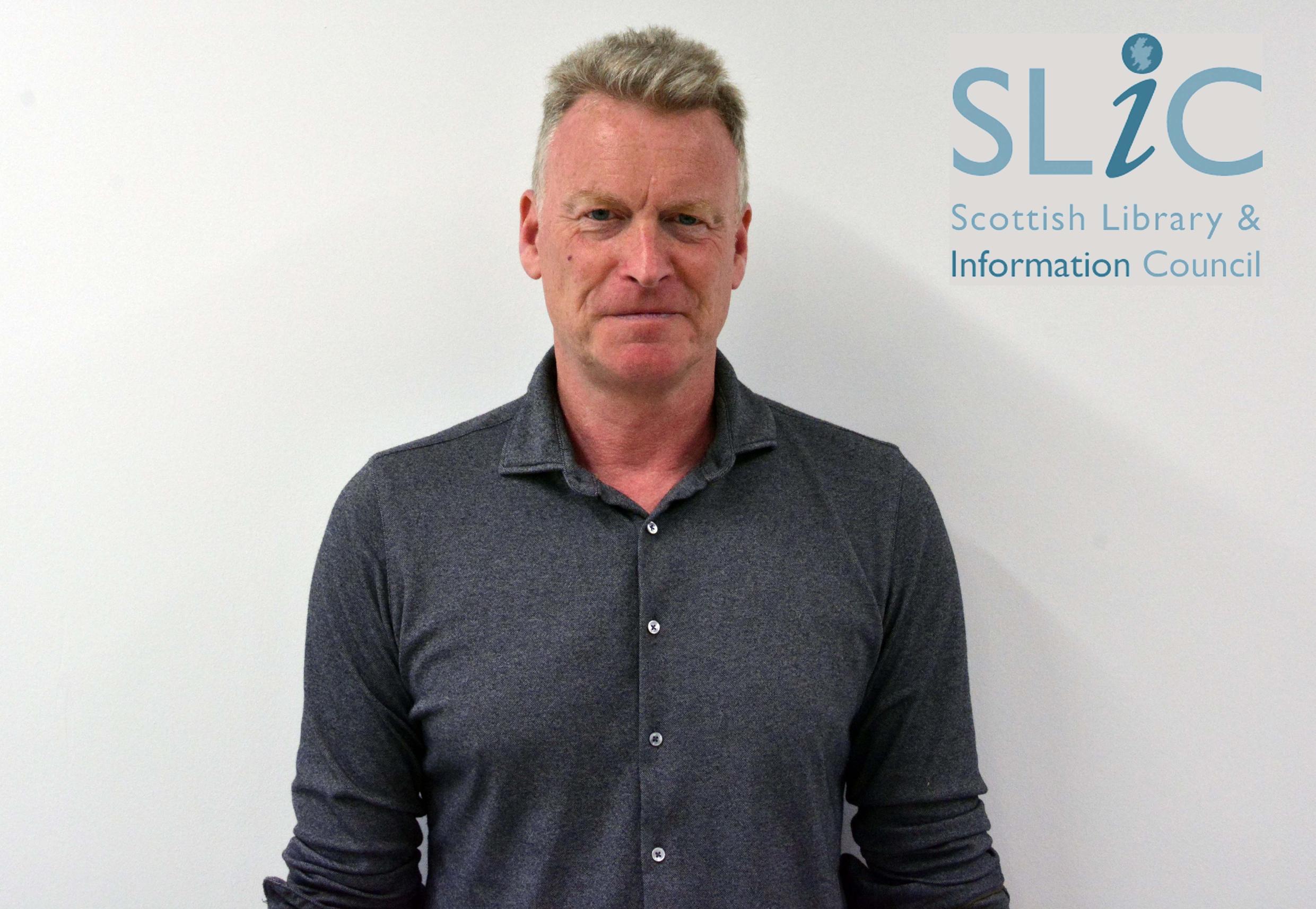
The national organisations worked together to add content to SLIC’s national learning platform, which is freely available to all public library staff and is currently being extended to include school librarians.
Dyslexia Scotland National Development Officer Lena Gillies said:
“We’re pleased to work with SLIC to ensure library staff are confident in supporting people with dyslexia. Libraries should be welcoming, accessible spaces for everyone, so this is a very welcome contribution to a more dyslexia-friendly Scotland.”
SLIC Digital Training Development Manager Jim Gibb said:
“We had several requests for training and guidance on how librarians can better support people with dyslexia. Dyslexia Scotland provided some much-needed information which we have been able to share on our digital learning platform to over 1,200 library staff. We’re delighted that we were able to collaborate with Dyslexia Scotland to deliver this essential information to our members.”
The new content will provide insights into what dyslexia is, how it can affect library users and what staff can do to help.
The collaboration reinforces the value of working together to share expertise, knowledge, and innovation to help make our libraries spaces where everyone feels included.
29 September to 5 October


Hop over to the Dyslexia Awareness Week Scotland web page to download some myth-busting materials.
dyslexiascotland.org.uk/dyslexia-awareness-week
When we bust the myths, we’ll be a step closer to a dyslexia-friendly Scotland. ■


Ellie’s Blue Dyslexia Ribbon

Buy the metal pin
Ellie was Dyslexia Scotland’s First Young Ambassador. She came up with the idea of a blue ribbon for dyslexia to raise awareness in 2012. Since then, over half a million fabric ribbons have been worn in schools, workplaces and communities across Scotland during Dyslexia Awareness Week.
This metal pin version is now available from our online shop for £3.00 or £2.70 for members when you’re logged in to your account.
Return of the podcast!
Listen out for the return of our podcast during Dyslexia Awareness Week. New host John Devine will chat with special guests on the theme of myth busting. We’ll post episodes on the webpage dyslexiascotland.org.uk/ podcast

Be a fact checker

We want to take an opportunity to bring something important to your attention. Recently a company shared one of our articles on Facebook, using our logo as the preview image. This may have created the impression that they are aligned with Dyslexia Scotland. We asked them to edit their post which they agreed to do.
This is a reminder to members to be critical when you view posts by any commercial organisations that sell aids for dyslexia or that give the impression we are associated with them. We encourage you to review their materials carefully before choosing to follow, share, or invest in such organisations.
The weirdest myth I’ve heard about dyslexia
(continued from page 13)
Two more members share the strange things others have said about dyslexia
Suzy Taylor
“You don’t look dyslexic”
The myth I always find the funniest is people telling me, “You don't look dyslexic”. What does a dyslexic person look like? Should I have a large cone on my head? Maybe there’s a tattoo on my forehead that you can find with an infrared pen.
I wonder what people's assumptions are when talking about dyslexia. Perhaps they think I came from outer space, and I am here to take over the world.
“You will grow out of it.”
If I had a pound for every time I have heard this, I would be a millionaire. I do wonder if people think there's a magic spell from Sooty and Sweep to fix my brain. At what point do you grow out of being dyslexic? When you leave school, maybe? The fact is that dyslexia is a lifelong condition. It is like a monkey sitting on your shoulder waiting for you to make a mistake. I have heard people saying that “they used to be dyslexic”. This might be the way they deal with dyslexia, as they are embarrassed by it.
“You can’t do that if you’re dyslexic”
I went through school being told that my career choices were poor. “You cannot do that because you have dyslexia”. I did try to prove to people that they were wrong by becoming a nurse. Looking back, I enjoyed the
20 Dyslexia Voice | Autumn 2025 Dyslexia Awareness Week edition
practical side of nursing. However, the academic side was completely different, and I did fall asleep during lectures. I now know that this was my working memory being overloaded. Returning to education has been nerve-racking; the little voice in my head says, “Don't go there, you're stupid.” So far, so good; I have passed everything to date.
“Dyslexic people aren’t smart”
One of the most frustrating myths is that dyslexic people are stupid. People look at you strangely. Dyslexia? You always had good grades at school and went on to university! Yes, people with dyslexia do attend university and complete degrees.
“Doctors diagnose it”
Finally, one myth I hear a lot is that if you go to the doctor, you will get an identification of dyslexia. Dyslexia is not a medical condition and does not require any prescription medications. As it is neurological, there is only one route for adults, and this is to go through an independent assessment.
Let's start busting the myths and changing perceptions about dyslexia.
Ross Linnett, CEO and Founder of Recite Me
One of the biggest myths about dyslexia is that it holds you back, that you just have to put up with barriers to reading and understanding information.
When I found out I was dyslexic at university, things finally made sense, but the tools I was given only worked on one computer in one place. It opened my eyes: the real problem wasn’t my dyslexia, but the lack of support when and where I needed it.
I didn’t want anyone else to face the same limits. That’s why I started Recite Me, to make sure accessibility isn’t tied to one device or one room, but available to everyone, everywhere. Our mission is simple: accessibility for all.
I believe no one should be held back by how they read, learn or communicate. We can break the myth that dyslexia has to limit people, and build a world where everyone can thrive in their own way.
Finding balance
by Tracy A Clark PgDip
Understanding her own struggle made Tracy a more empathetic psychotherapist
For many, dyslexia conjures images of difficulty - reading struggles, spelling mistakes, academic challenges. But for me, as a psychotherapist working in private practice and with a charity in West Lothian, dyslexia is far more complex. It’s not just a struggle or a strength. It’s both. For me, it’s my superpower and my kryptonite - my strength and my weakness - and learning to balance the two has been one of the most challenging journeys.
Growing up, I was led to believe that dyslexia meant I wasn’t smart, not capable of academic success. Directly or indirectly, I received the message that higher education, professional careers, and complex intellectual work weren’t for “people like me.” That narrative burrowed deep, this became a belief about my self-worth and ability.
The shame was powerful. I often avoided disclosing my dyslexia, and I certainly didn’t ask for support. I pushed myself to "keep up" while secretly battling exhaustion, self-doubt, and the ever-present fear of being found out. Dyslexia, in those early years, felt like something I had to hide at all costs.
Training as a psychotherapist was a turning point. Not because my dyslexia became easier, but because I entered environments that valued empathy, insight, and deep listening - areas where I naturally thrive. I began to understand my dyslexia not as a set of limitations, but as a different cognitive style.
I think in patterns as a visual learner, which I believe gives depth to my work. These traits don’t exist despite dyslexia - they often stem from it.
22 Dyslexia Voice | Autumn 2025 Dyslexia Awareness Week edition
Still, that doesn’t mean dyslexia is always a strength. Some days, it drains me and I place pressure on myself to get the job done. I can feel physically and emotionally depleted. In those moments, dyslexia feels like my weakness - a force that saps my energy and confidence. But I’ve learned not to fight it. I honour it. I rest when needed. I ask for support and receive it without shame. I use tools - assistive tech and time management strategies - that help me work smarter, not harder.
Equally important is my decision to speak openly about it. I no longer hide my dyslexia in professional settings. I advocate for neurodiversity in the workplace, challenge assumptions about what dyslexia “looks like,” and model what it means to request adjustments without shame. These aren’t acts of self-pity, they’re acts of resistance. My hope is that my honesty fosters change and I encourage people to ask about dyslexia from a place of learning, not judgement.
In therapy, I work with many clients who carry similar wounds - those old, internalised messages of “not good enough”. Many are neurodivergent or have experienced academic trauma. My lived experience helps me meet them with empathy and authenticity. I don’t just talk the talk - I walk it. And that builds a different kind of therapeutic alliance.
I was once told I wouldn’t make it to college, let alone university. Today, I have multiple qualifications and continue to invest in myself. Dyslexia hasn’t disappeared - I’ve just stopped seeing it as something to overcome. I now recognise it as something to integrate.
Yes, dyslexia is exhausting at times. Yes, it can hold me back, if I let it. But it also sharpens my intuition, fuels my creativity, and makes me a more compassionate practitioner. Like any powerful force, its impact depends on how I engage with it.
Dyslexia doesn’t need to be a flaw or a gift. It’s part of who I am, full of unexpected strengths and challenges. I can now recognise my kryptonite and how it impacts on me.
Dyslexia awareness at Dunblane primary school
by Seona Stevenson, Support for Learning Teacher
P7 pupils are putting the sparkle into Dyslexia Awareness Week at Dunblane primary, celebrating different ways of learning and thriving together
Dyslexia Awareness Week is celebrated every year at Dunblane Primary School and this year will be no different. However, the delivery and content changes from year to year as it is planned, organised and facilitated by a different group of children.
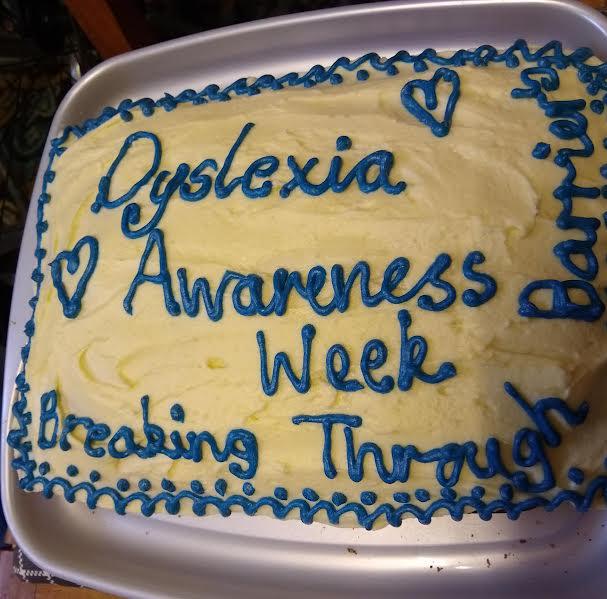
This session there are 14 Dyslexia Ambassadors. They are P7 learners, usually identified as having dyslexia, who are keen to raise awareness of dyslexia among pupils, staff, parents and the wider community.
The Dyslexia Ambassadors are not an exclusive group; any learner can take part if they wish to help. Over the years, there has been a shift in pupil perceptions about dyslexia and attitudes. The year I started at Dunblane Primary School, there were children who were identified as dyslexic who did not want to organise or celebrate Dyslexia Awareness Week. They preferred not to talk about their dyslexia or any of the challenges they faced as a result.
In recent years, all children at Dunblane primary with a dyslexia identification have been enthusiastic about being a Dyslexia Ambassador and helping others to understand their strengths and challenges.
24 Dyslexia Voice | Autumn 2025 Dyslexia Awareness Week edition
Common features of dyslexia awareness week celebrations at Dunblane Primary include:
• An emphasis that all children can succeed. There are no ceilings on expectations of achievement due to differences in the way we think and learn.
• An understanding that dyslexia is different for everyone. We have our own dyslexic profile and understanding of this empowers learners.
• A commitment to breaking down barriers to inclusion through understanding and discussion.
• Pupil voice is integral. The Dyslexia Ambassadors make decisions about content and delivery.
• Previous successes are built upon on and feedback from previous years is taken into account
• There is involvement of the whole school including the nursery.
• There will be a presentation at assembly, displays of events and awareness of activities among parents and the wider community.
Dyslexia Awareness work is recognised as important across the school community and is valued as a vehicle for delivering a more inclusive ethos. Time is set aside for Dyslexia Ambassadors to learn and work collaboratively on planning Dyslexia Awareness Week. It is not an ‘extra’ or an afterthought and is planned for prior to the commencement of each academic session. Inclusion is fundamental to Scottish Education and the Curriculum for Excellence. Greater awareness of indicators of dyslexia means improved identification of children with dyslexia earlier in their school lives.
What next?
As always, there is work to do. We will continue to keep abreast of new research and developments such as the recent research carried out by Dyslexia Scotland and Dr Jeremy Law of University of Glasgow. Understanding what life is like for adults with dyslexia is essential for problem solving and future change to improve life for Scotland’s children.
Thank you, Dyslexia Scotland
These members got in touch to say thanks for an intervention that led to better outcomes in school
My support from Dyslexia Scotland
by Lucy Waugh
Dyslexia Scotland has been a great aid in improving and providing me with specialist help throughout my developmental stages in primary and high school. The support is open and without judgment for myself and my family, making it an easy and valuable service to not just me but everyone with dyslexia and dyslexic loved ones.
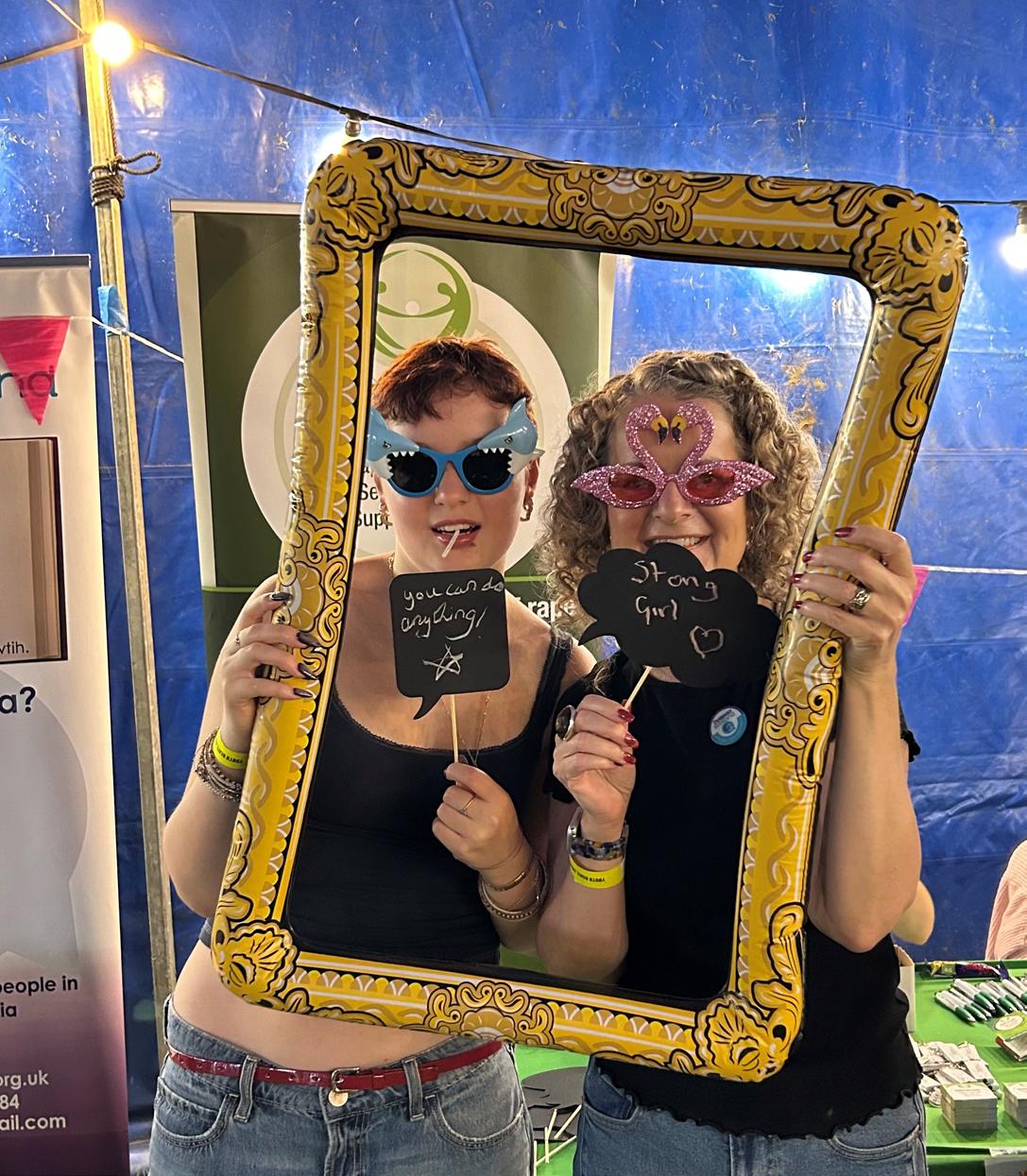
Dyslexia Scotland supported me and my mother in learning about the condition beyond the surface level. As an organisation, it recognises the complexities often missed by non-specialist groups who may view dyslexia as just difficulty with reading and writing. Dyslexia has a wide effect on a person’s language, functioning, and processing skills. Dyslexia Scotland also helped me and my mother to ask for appropriate adjustments for school exams and assessments, allowing me to use ICT in written exams and having extra time, which greatly improved my performance, but also my
confidence in my ability. After this summer, I will be attending university and continuing to access these adjustments thanks to Dyslexia Scotland.
I also received free tutoring from Dyslexia Scotland through their Sean Connery Tutor Bursary Fund* to aid in my Maths National Five course, which helped me to pass. The tuition was tailored to fit my needs, not a one-sizefits-all solution. This empowered me to reach my potential thanks to the time and care put into the person-centred help provided. Dyslexia Scotland also allowed me to take part in opportunities where I could meet other people with dyslexia and hear about their experiences, attend workshops on the use of ICT and talks from dyslexia specialists.
Overall, the help and support I’ve received from Dyslexia Scotland has been priceless as it has empowered me to reach out for support for my dyslexia, improving my academic life but also my day-to-day life, helping me tailor my life and situation to be as dyslexia friendly as possible, rather than fighting against it or trying to fit myself into a box or system that was not made for me.
Helpline thanks

I wanted to give some feedback on the call that I had this week. After a very stressful week trying to juggle everything and navigate school and learning, I had a call with Sharon, my first to the Helpline. What a service this is! We had a chat where I was able to give context, talk through experiences as a worried mum. Sharon listened with an empathetic ear and gave the most useful information straight to my email. I feel more in control and better able to advocate for my wee boy. Thank you so much - what you do makes such a difference.
*Note from Dyslexia Scotland – the Sean Connery Tutor Bursary Fund ended in 2024
More power to you!
If you’re already a super-fan of Mission Dyslexia, then power up your interest in this brand new dyslexia resource from writer heroes Paul McNeill and Julie McNeill and illustrator Rossie Stone
Meet Creatia, Persisto, and Willforce - your superhero guides to discovering your strengths.
They’re bold. They’re determined. They’re creative.
Through these colourful, write-in activity books, you’ll explore your strengths, build confidence, and have fun along the way.
• Persisto – your guide to persistence and self-esteem
• Creatia – your guide to creativity and a can-do mindset
• Wellbeing Willforce – your guide to mental health and self-care
The Mission Dyslexia Minibooks are packed with drawing space, mind maps, activities, and plenty of fun. Published by Jessica Kingsley Publishers and on sale now.

The write stuff
Mission Dyslexia writers Paul McNeill and Julie McNeill are well-known changemakers for the dyslexia community
Paul is one of our Ambassadors and the Secretary to the Cross-Party Group on Dyslexia in the Scottish Parliament. He gets a mention as “Super Paul” in an article by young people from Trinity primary school in Edinburgh over in the children and young people’s section of this edition of Dyslexia Voice.
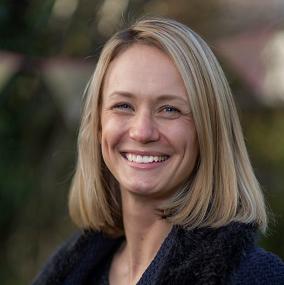
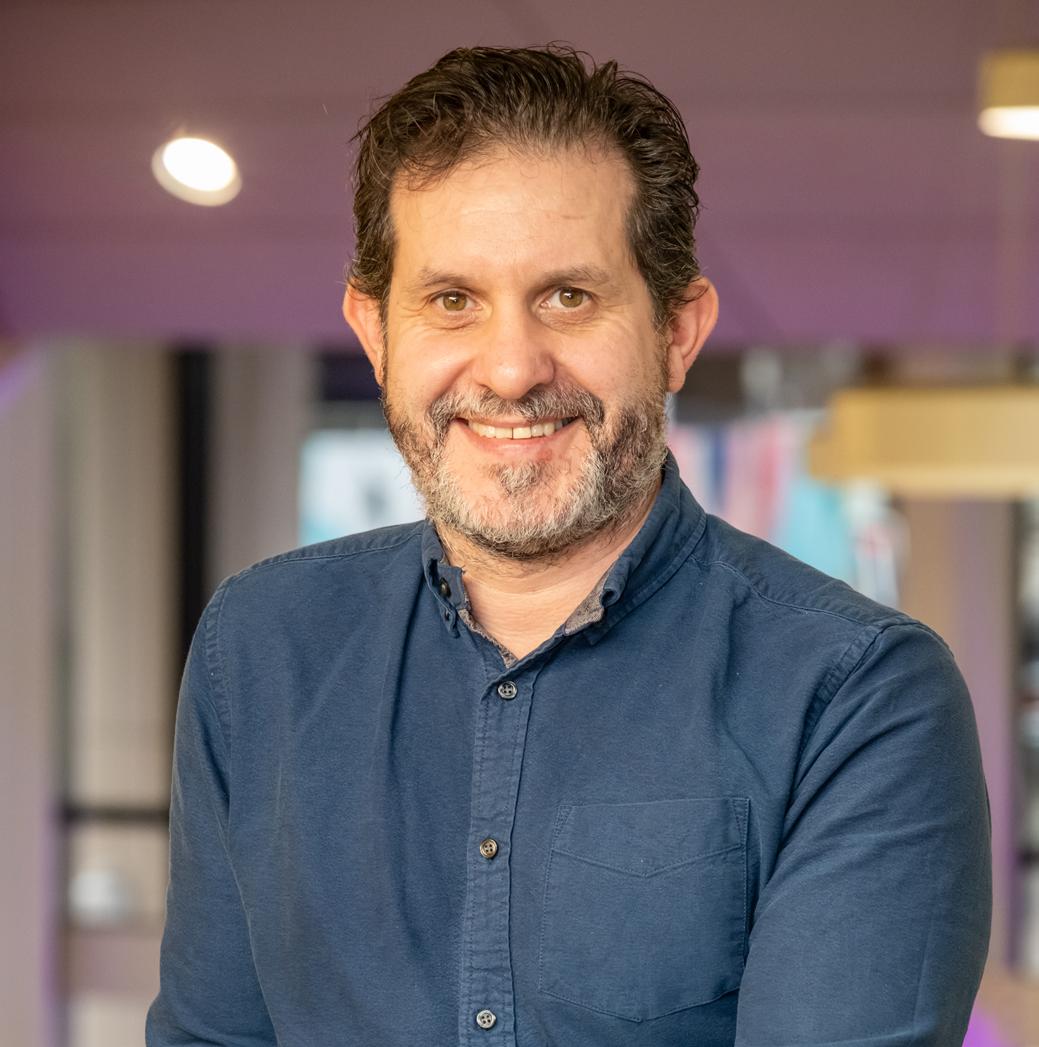
Julie will be at our Education Conference later this year, interviewing one of our other Ambassadors, fellow author and wildlife cameraman Hamza Yassin. If you’ve not booked your tickets yet, you still have time - scan the QR code on p2 to reach the Conference web page.
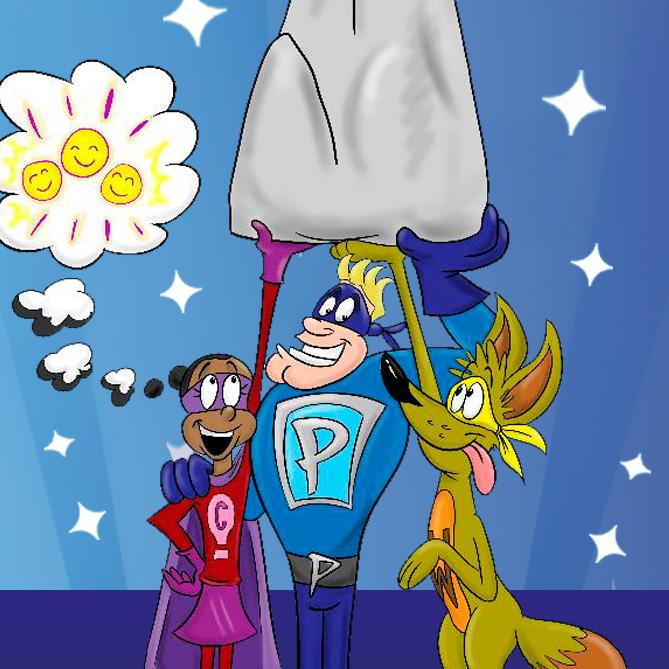
Turn to the Useful Stuff column in the children and young people’s section of this magazine to get an exclusive discount on the Mission Dyslexia resources.
Learning from the learners
by Kara Hunter, a member of Dyslexia Scotland
Living with both dyslexia and autism, Kara knows first-hand what it means to learn differently - and the powerful impact of being supported with patience, creativity, and genuine understanding
School wasn't an easy experience for me. I struggled most with literacy and maths, and for a long time, I didn't believe I could succeed. Some teachers shared that view. But two exceptional educators made all the difference – they believed in me, adapted their approach, and helped me pass my exams.
That support opened the door to university, where I met a dyslexic lecturer who finally helped me learn in a way I understood. For the first time, I felt truly seen.
After graduating, I developed Functional Neurological Disorder (FND) following a COVID-19 infection and became an ambulatory wheelchair user. That chapter of my life changed everything. It deepened my empathy and strengthened my determination to support others who feel different, overlooked, or misunderstood, especially in educational settings. As a newly qualified teacher, I spent my probation year observing how many learners were still being left behind. It was clear to me that something wasn't working, and what was needed was not more pressure, but more compassion - a space where children who learn differently could feel safe, understood, and capable.
My own experiences, both as a learner and a teacher, have shaped my approach. I work from a neurodiversity-affirming perspective that focuses on strengths rather than deficits. I don't believe in trying to "fix" children. Instead, I believe in giving them the tools, encouragement, and space to embrace who they are.
My philosophy
For me, this means using flexible, child-centred approaches – whether that involves visual aids, sensory supports, or movementbased strategies to help learners feel comfortable and confident. When children are supported in a way that makes sense to them, they're more likely to engage and grow. I also believe that learning and mental well-being are closely intertwined. Building knowledge is important, but so is building resilience, selfworth, and self-advocacy.
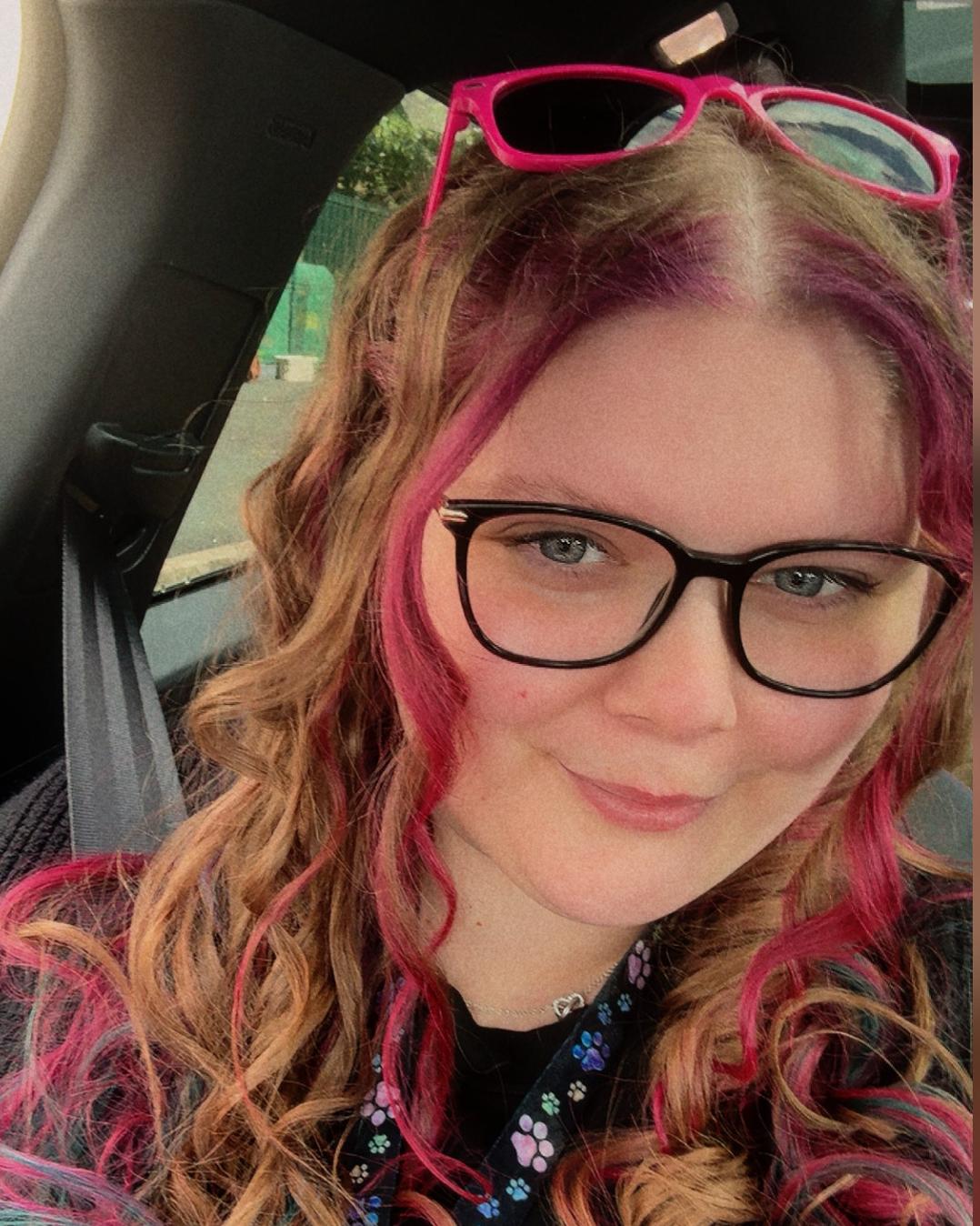
Every child deserves to feel capable, respected, and celebrated for who they are. My work has also been shaped by the amazing young people I've met along the way. One of them is Alex – a bright, brave learner whose quiet determination continues to inspire me daily. Her journey reminds me why inclusive education matters and why we must keep advocating for change. If there's one thing I've learned, it's that children shouldn't have to adapt themselves to fit a system that wasn't built with them in mind. Instead, we should be adapting the system and our thinking to meet them where they are. For families, educators, and young people navigating the world of neurodiversity, I hope my experiences offer reassurance: that there is a place for everyone in education, and that with the right support, children can thrive, not despite their differences, but because of them. Let's keep working toward a world where learning feels safe, joyful, and genuinely inclusive.
Changemaker Channel
Inspiring dyslexia-friendly actions from around Scotland
HIghlands | Crown Primary School
A collaboration between Gemma Edwards,(ASN Teacher at Crown Primary) and April Ingram (parent and secondary school librarian for High Life Highland) formed a partnership in 2024 for this project. With the backing of Crown Primary Head Teacher, Miriam MacDonald and Deputy Head Teacher, Suzanne Dunbar, their goal was to improve resources for children with an identification of dyslexia at Crown Primary.
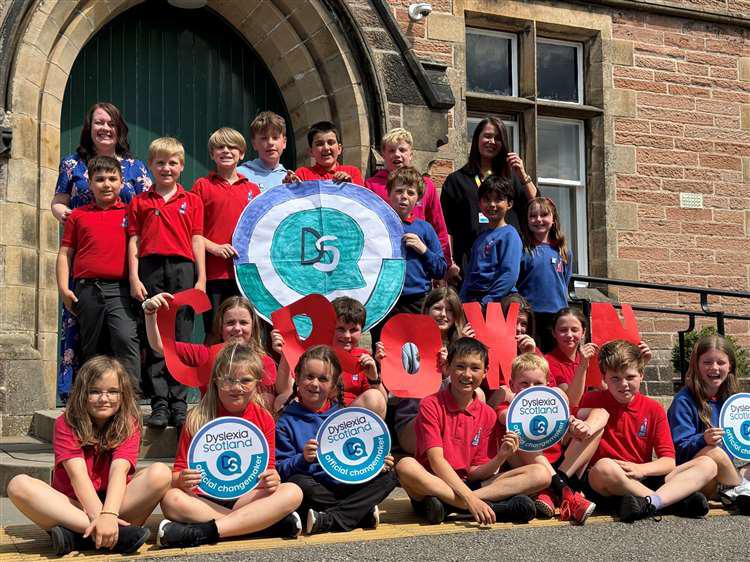
April applied to Highland Council’s Ward Discretionary Fund for money to purchase a dyslexia-friendly and reluctant reader collection of books for Crown Primary School. She secured £1000 of funding and purchased a collection of graphic novels and Barrington Stoke books.
Gemma formed a group of Digital Developers. With her guidance, these pupils have become leaders within the school in the use of the software Read&Write.
Gemma has given these young people the tools to become peer educators, with pupils being able to support one another in the use of this technology. Between them, they have done everything that they can to maximise the potential of this project, combining books and technology, all with a focus on supporting and empowering dyslexic learners.
Young people as changemakers
The work that Gemma has done with the group of Digital Developers is incredible. Older pupils who have been using the Read&Write software for several years are able to show pupils with a new identification of dyslexia how this software can help them at school. The peer-to-peer support has been amazing, and it is truly encouraging to watch pupils help one another to get the best out of the technology available.
Through the Digital Developer group, Gemma has brought together pupils from across the year groups P4 to P7 and it is great to see how well they support one another to strive to achieve their full potential.
Pupils launched the books and spoke about the technology available at a Dyslexia Changemaker assembly last week. Gemma worked with her group, and they led both upper and lower assemblies and spoke confidently about what it means to be dyslexic. ►
Left: Staff and pupils from Crown primary school celebrate their Changemaker status. Image credit: Inverness Courier
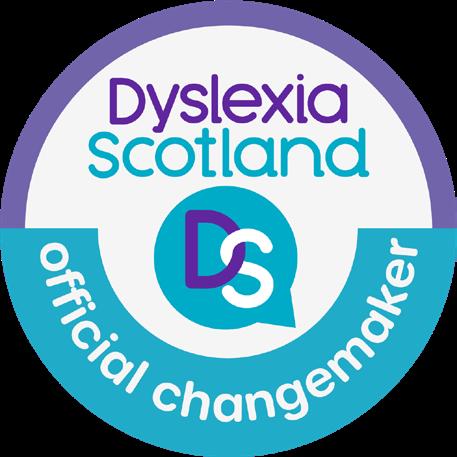
Working together and supporting one another seems to have broken any stigma about this learning difference before it has had the chance to form Speaking before 250 of their peers was so brave and inspiring and the young people who took part were encouraged by the positive reactions from fellow pupils during their presentation. Gemma, along with Finlay, Quinn, Berkay, Conor, Lauren, Brody, Umit, Harris, Archie and Hasanain are truly inspiring dyslexia changemakers in their school.
Highlands | Iain Kenny

Iain says: “I volunteer as a business mentor at my local school to help students develop critical thinking, entrepreneurial skills, and confidence navigating future work environments - including the growing role of AI. I also write a public newsletter on LinkedIn called Dyslexic Business Thinking, sharing inclusive ideas and tools to support accessible business practices. By openly sharing how dyslexic thinking contributes to innovation and inclusive business design, I want to help reframe dyslexia as a strength - not a limitation. My mentoring encourages young people to see different thinking styles as assets, and my writing highlights how dyslexic perspectives can shape the future of work, especially in a world increasingly influenced by AI. I aim to reduce stigma, boost confidence, and show that accessibility benefits everyone - not just those with dyslexia.”
Busting myths left, right and centre
by Janey Ball, a guest contributor
Dyslexia Scotland Ambassador Mark Stoddart is collaborating with Nairobi education advocate Anne Musalia to confront and dismantle some persistent myths
Busting a myth in Early Grade reading
At Anne’s InfiniteCare Centre in Kenya, of which Mark is a significant funder, a common and damaging myth plays out daily: that children who struggle to read simply need to “try harder.” In reality, many of these children are battling an invisible barrier - dyslexia. Without early, individualised support, such children are often left behind.
As an early intervention and rehabilitation centre, InfiniteCare in Nairobi, Kenya works at the front lines with teachers, parents, social workers, and medical professionals who support children at risk of falling through the cracks. They make sure that no child is mislabelled, misunderstood, or left out of quality education simply because their brain processes language differently.
They also invest in teacher training, recognising that a confident, informed teacher can be a child’s best advocate. Regular classroom visits and hands-on mentorship keep the support going well beyond the Centre’s walls.
A major boost to their efforts has come from the UFLI Foundations Manuals, donated by Mark. The manuals’ structured, research-based approach ►
helps the teachers at InfiniteCare to introduce reading skills in the right order - starting with phonological awareness.
InfiniteCare is busting the myth that dyslexia is a barrier to learning. It’s notit’s a call for a different kind of teaching. With the right strategies, tools, and mindsets, children with dyslexia not only learn to read - they thrive.
Busting the myth of "It's who you know"
Another myth that Mark and Anne have been proud to bust is the idea that success depends on having a small, tight personal network. While trusted relationships matter, what truly opens doors in today’s world is belonging to a shared purpose-driven network; one that transcends borders.
As members of Rotary International, both Mark in Scotland and Anne in Kenya are living proof of the power of the global community. They were introduced by a fellow Rotarian in Colombia, Ken Masson, and their joint mission was cemented by the visit to Kenya of a Rotary District Governor from Massachusetts.
The Rotary connection has led to tangible outcomes and strengthened interventions for children at InfiniteCare. None of this would have happened within the limits of a local circle. So no, you don’t need to know the “right people.” You need to be part of the right kind of network.
Busting the myth: “There’s nothing I can do about poverty”
A common myth, and one of the most paralysing, is the belief that poverty is too big, too complex, and too entrenched, and that ordinary people can’t make a difference. But this simply isn’t true. The reality is that poverty is sustained as much by indifference as by lack of resources. Time and again, it is ordinary people who quietly step in to
36 Dyslexia Voice | Autumn 2025 Dyslexia Awareness Week edition
change lives. “Whether it is by funding a child’s education, donating time or skills, creating opportunities, or simply treating those in hardship with dignity and respect, each action adds up”, says Mark. “Relieving poverty is essential, and the impact is available to anyone with the willingness to act. I feel strongly that I need to do my part in helping to relieve childhood poverty and I am asking anyone who is able to consider contributing to InfiniteCare. I will match any contribution up to a total $30,000. Anyone wishing to join my effort can contact me at accounts@markstoddart.com.”
As these stories will have revealed, when people like Anne Musalia and Mark Stoddart act together, something powerful happens: myths collapse - the myths that say children with dyslexia can’t learn, that poverty is unchangeable, that ordinary people can’t make a difference, or that meaningful change only happens in familiar places. In their place, we see that there are connections across continents and that lives can be transformed by simple actions.
So bust a myth today and see how wonderful and meaningful ideas can take root and grow into something enduring. ■

Walk this way
Changemaker Isla Glover tells Dyslexia Voice about why she donned her kilt to raise funds for Dyslexia Scotland this summer
This year my brother and I decided to take part in the Dundee Kiltwalk and chose to fundraise for Dyslexia Scotland! With dyslexia being a close topic to our family - I’m dyslexic and so is my dad. it felt amazing to be able to fundraise for such an amazing charity.
It was my first experience doing the Kiltwalk and I had a blast - I would encourage anyone who can to take part. The day was full of laughter, good vibes and sunshine. It was amazing to see all the charities and the amount of money raised all together.
Charities such as dyslexia Scotland rely heavily on donations from charity events. Even though they are a national charity, they are only a small organisation aiming to make Scotland dyslexia friendly.
Even when the walk got tiring, I remembered the difference that even two people can make through donations.
My brother and I raised a total of £445 (an assessment for dyslexia can cost £350).
This page: Isla in her Dyslexia Scotland t-shirt; right: Isla and her brother
Dyslexia
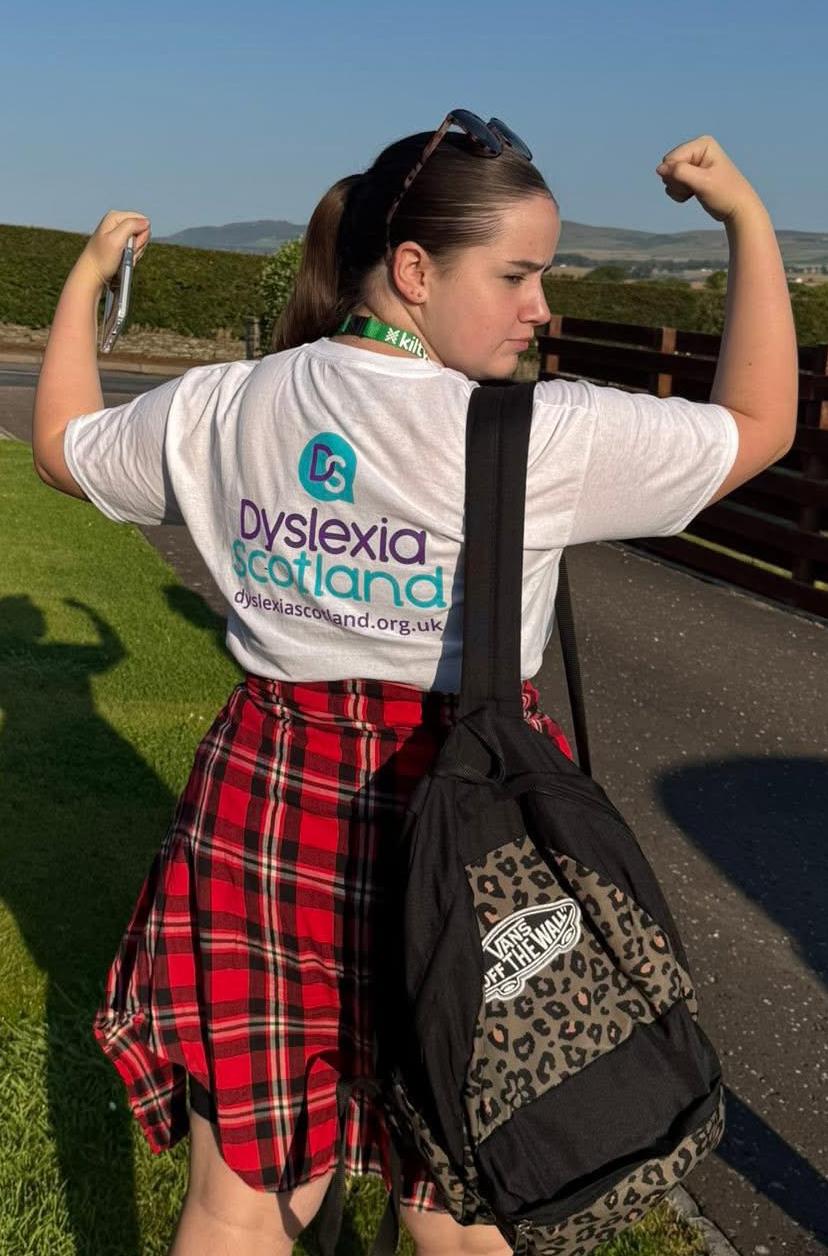
The thought that the money we raised could change someone’s life means more to me than people will ever know. By joining the momentum and engaging with Dyslexia Scotland you can help the charity provide critical support for people with dyslexia in Scotland, from funding private tutoring sessions to continuing research for making Scotland inclusive. Be a changemaker today!
And to every dyslexic person across Scotland struggling to find your confidence, voice and strength: you are incredibly smart and worthy of succeeding. Never let anyone tell you anything different.

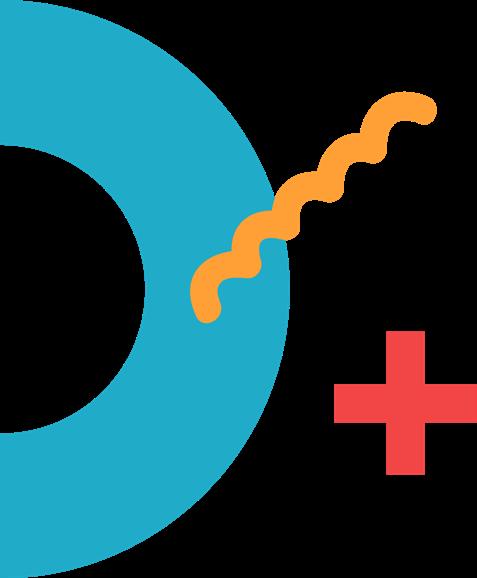
Create and share
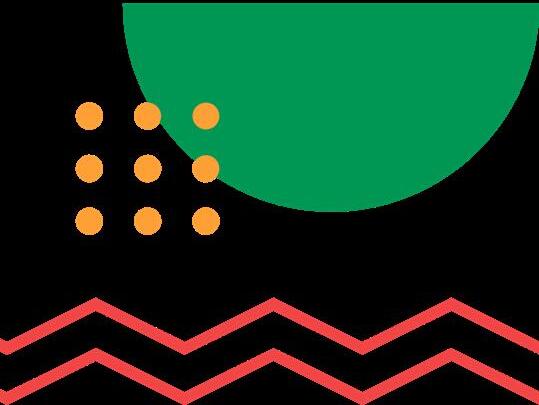
Our Parliament presentation How we got the decision makers to listen
by young people from Trinity primary school in Edinburgh
On Wednesday 28th May 2025, we attended the Cross-Party Working Group on Dyslexia at the Scottish Parliament to represent our school and all dyslexic learners.
Our presentation was about the strategies and tools which help us as dyslexic learners, both generally and in school. We talked about different assistive technologies which can help us on our iPad, such as speechto-text and having your iPad read to you. We also talked about the methods which help us such as Read Write Inc. Fresh Start. We were thrilled to share some initiatives which we have implemented in the school to help dyslexic learners, such as the ‘Breakout Space’ which is where we have created a quiet space where we can learn more effectively.
Our aim was to raise awareness about what it is like to be a dyslexic learner, some of the challenges that we face but also what we find helpful. We wanted to share some of the tools and strategies we use to be able to empower other dyslexic learners and raise awareness of what can help. We want to inspire and educate people to be able to support everyone who may have dyslexia but also enable young people with dyslexia to be able to thrive and meet their potential.
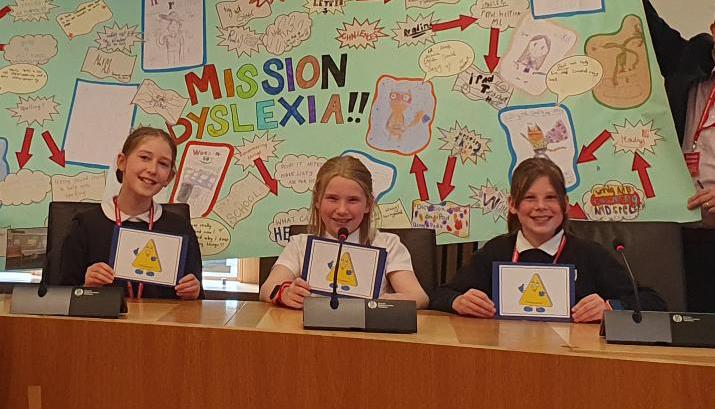

We were delighted to have taken part in a Mission Dyslexia workshop with ‘Super Paul’ and were thrilled when Paul invited us to speak at the Scottish Parliament. We brought our huge poster which we made about the Mission Dyslexia resource..
Zara said: “It meant the world to me to be able to change people’s lives and be an ambassador for people with dyslexia. We want to help to make change so that we can help other people with dyslexia and hope we can make a difference”
Georgia said: “It was such a good opportunity to go to Parliament and talk and listen about what is happening all around Scotland for other people with dyslexia. We really hope that what we spoke about will help to make a difference and allow young people with dyslexia to do all the amazing things they want to do.”
Martha said: “It was such an exhilarating experience to be able to speak to all the important and influential people that were part of the Cross-Party Working Group. It has been amazing to have such brilliant feedback and to feel that we have so many amazing people supporting us and fighting for those who are dyslexic learners.”
The staff who took the P6 students to the Parliament said they are incredibly proud of the learners who continue to be superb ambassadors for all learners with dyslexia. They also said that seeing these learners speak with such openness, honesty and confidence was inspirational and seeing the next generation raising awareness for dyslexic learners in the future was a wonderful thing to experience.
Dyslexia makes me me
by Aimee McAuly
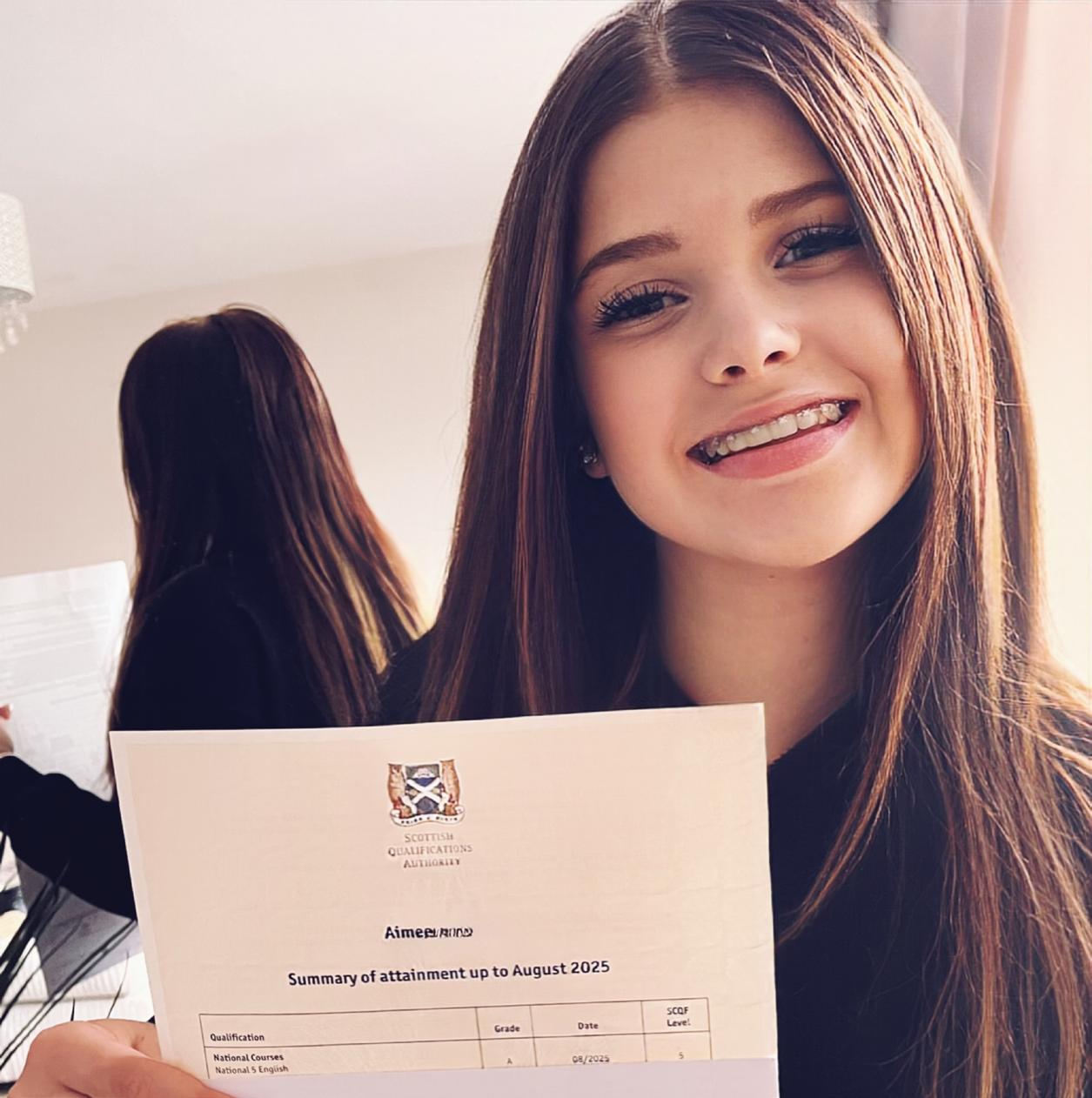
From the start, I was never told that dyslexia could stop me from doing anything. In fact, I was told it gave me creativity and insights others don’t have. Since I believed that, I feel like it’s one of the reasons I just got an A in my English exam. No matter how shocked teachers were that “someone with dyslexia” could be so interested and good at the subject, I continued to learn in a way my head could accept, which helped grow my love for a subject my brain was supposed to reject.
I was identified with dyslexia from the get-go. And luckily for me, instead of it being ignored, I had a mum and teacher who pushed to make sure I was not only tested but had all the resources and help I needed. Mr Gonnet was a teacher who really listened to an eight-year-old little girl and made sure I had every bit of support going forward throughout school. He showed me that I was more than just dyslexia - I was meand that I just had to learn in ways that helped me. And that’s exactly what I did. I never gave up, even when things felt impossible - and trust me, having seven written subjects this year felt impossible. I felt like words and information were drowning me. But I took a step back and looked at it from a different angle. I put all subjects into lists: the ones I wanted and needed to work on most, and then the rest. None were less important - I just had to prioritise. English was at the top of that list.
Now that I know
After being identified, my primary school added me to lots of support and learning groups. My favourite was the creative writing group. I loved knowing that I could make up anything I wanted - any world, anyone. I found it fun, and that’s where I think I discovered my favourite subject. I continued to write hundreds of stories, and finally, when I got a Chromebook from school during COVID, it changed everything. I was actually keeping up with everyone else in my class.
High school eventually came. Again, things were never ‘easy’, but I still had help. Growing up, I was never taught dyslexia was a bad thing - in fact, the opposite. Mum taught me about successful people who were just the same, and how my brain just learns differently. So talking about it and asking for help was never difficult for me.
One day, when nothing I read was sticking - I read over and over and had no idea what it said - I told the teacher. She read it to me once and it made sense. It only took five seconds to ask and make that lesson easier. And yes, we do need to put in extra work, but at the end of the day, it actually helps us and our work ethic.
I can’t say I have always loved my dyslexia, but I’ve never known life without it, and I don’t think I would change a thing. I know I have it, so I’ve always put effort in and tried really hard for things. I usually do well, so I need to kinda thank my dyslexia for that at least - because without it, I might not have that discipline.
I definitely worked hard to get my A in English, but a strong support system from an early age really sculpted a positive outlook and completely eradicated any ‘taboo’ for me.
And I mean, I actually do like being dyslexic. It really does make me me.
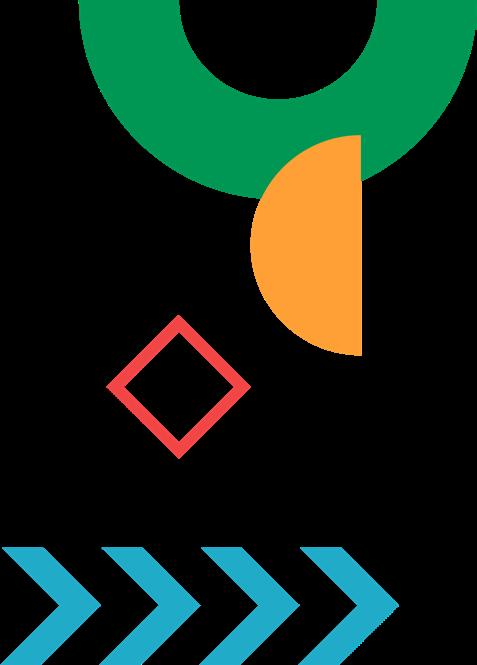
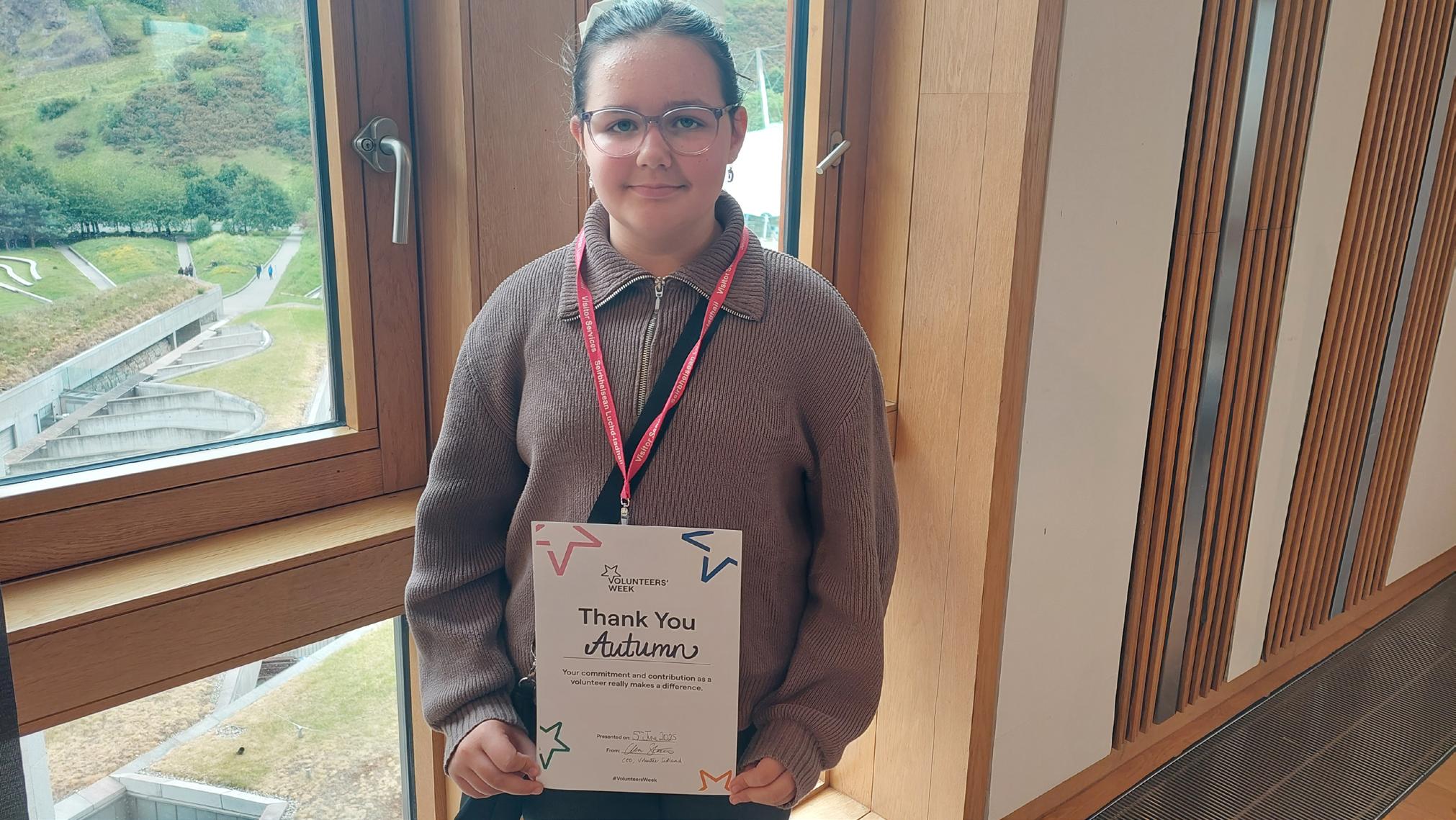
Young Ambassdor Autumn was the youngest person attending the Scottish Parliament Volunteers Week Scotland event earlier this year. Autumn did a great job representing Dyslexia Scotland. Our Young Ambassadors raise awareness of dyslexia in lots of different ways. Check out what they do on our website.

dyslexiascotland.org.uk/meet-the-young-ambassadors/

There’s a brilliant new miniseries of Mission Dyslexia books out and Dyslexia Scotland members can use this special top secret discount code! 20% discount MISCOTT20
Thanks to Beano for writing our jokes! You can find FREE jokewriting and reading resources at schools.beano.com and new jokes every day at Beano.com Have you got the brains to take on this game? Test your smarts through a series of challenging brain teasers. Be your own kind of superhero!
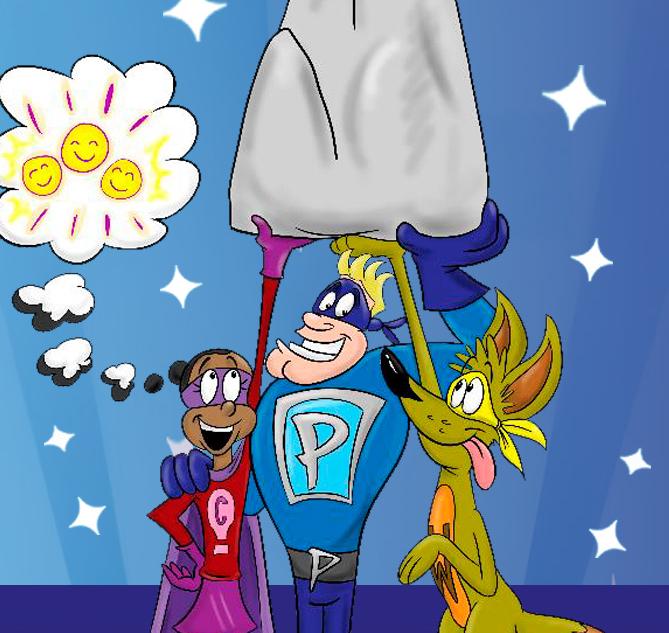
The Abdominal Snowman!
Get more involved
Dyslexia Scotland is a thriving community with loads of opportunities for learning more about dyselxia and getting involved.
Check out all these ways you can connect more with our work.
Events
From Parent Masterclasses to teacher workshops and Dyslexic Adult Networks, there’s something for everyone with an interest in dyslexia. Check the Events calendar on our website to see what’s on.
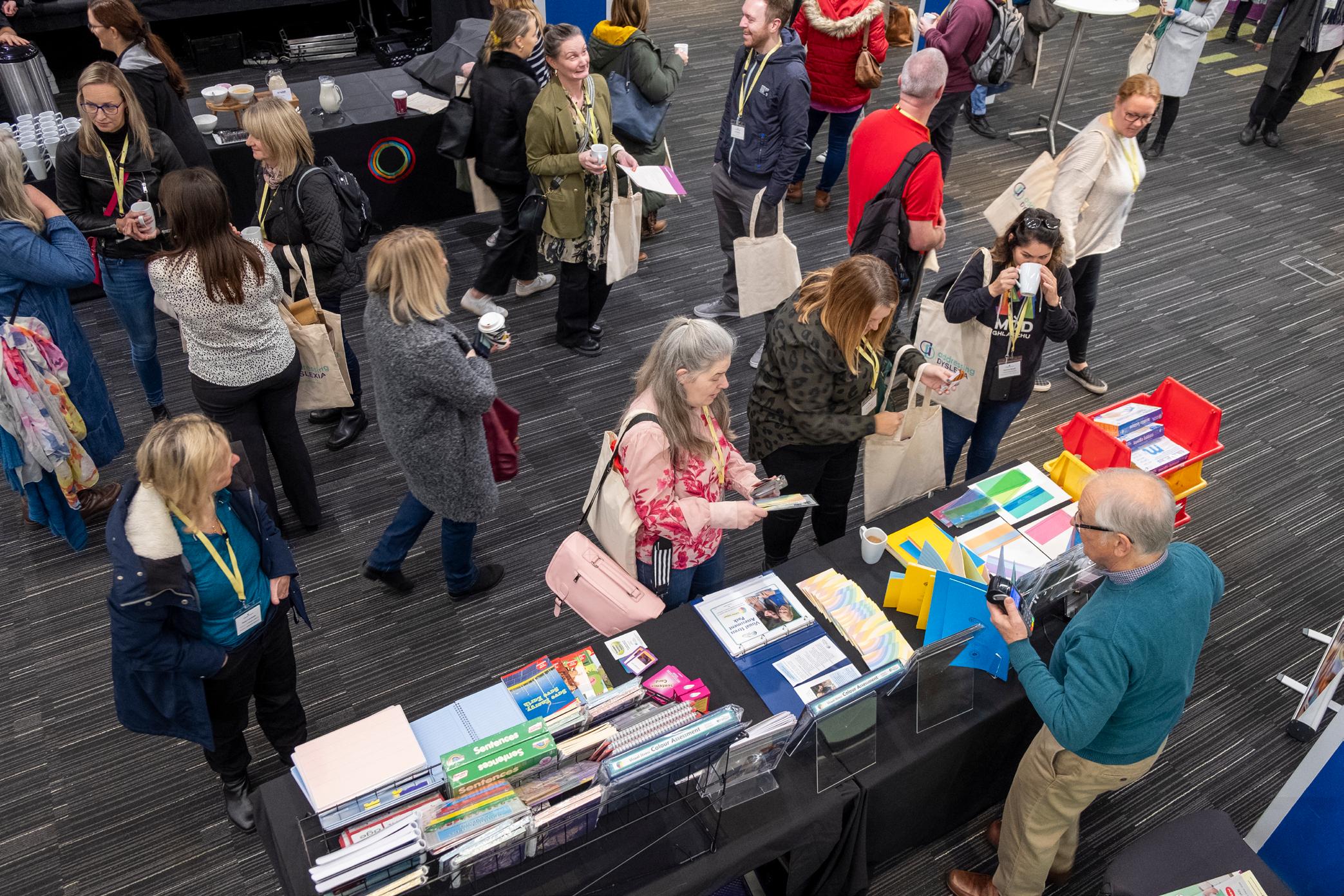
Workplace involvement
Encourage your managers and colleagues to do more for dysleixa. We offer workplace training and organisational membership. We’d love to hear from more companies who want to fundraise on our behalf or offer sponsorship for our work.

Training
Local Branches
Our Branches aim to raise awareness and understanding of dyslexia by holding meetings which are open to the public. Anyone with an interest in dyslexia is very welcome to attend – children and adults with dyslexia, parents, professionals and more. Find your Branch at dyslexiascotland.org. uk/find-your-local-branch/
Make a regular donation
Dyslexia Scotland relies on the generosity of funders and donors to do the work we do making Scotland dyslexia friendly. You can help sustain our important work by making a regular donation through Just Giving.
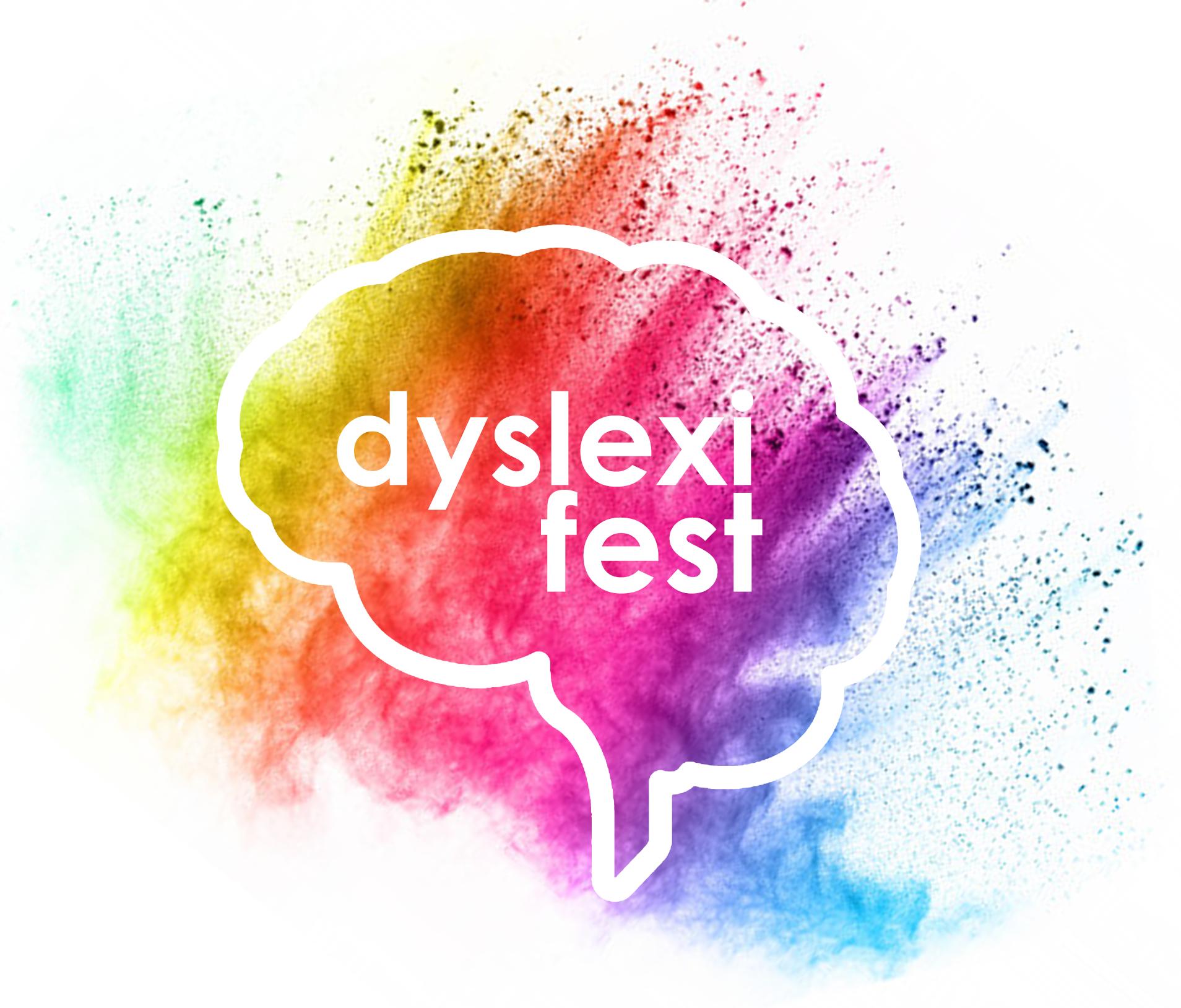
Talks Stalls

Saturday 4 October 10am to 3.30pm
Barracks Conference Centre, Forthside Way, Stirling
FK8 1QZ
dyslexiascotland.org.uk/events
Charity No. SC000951
